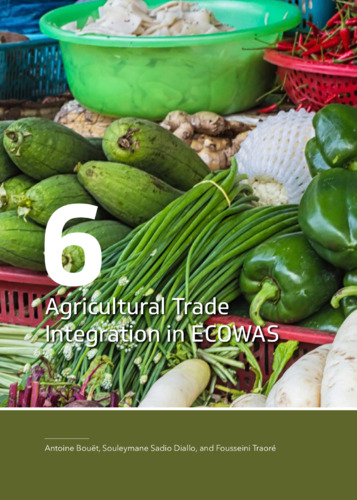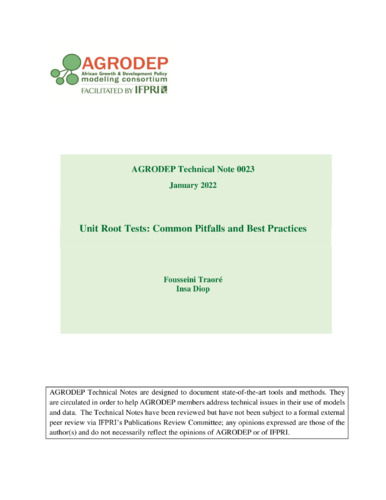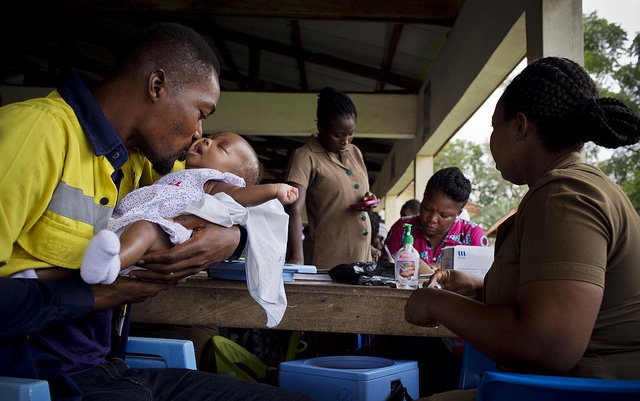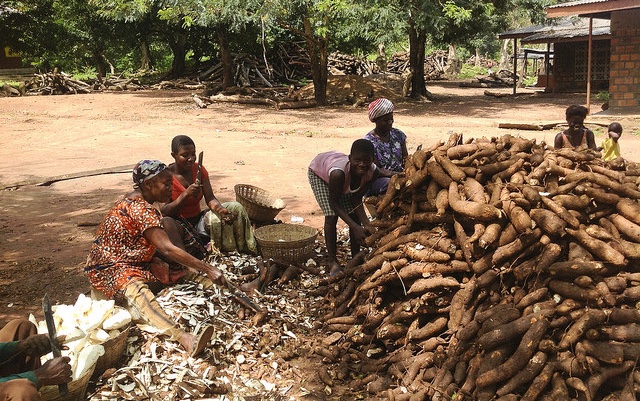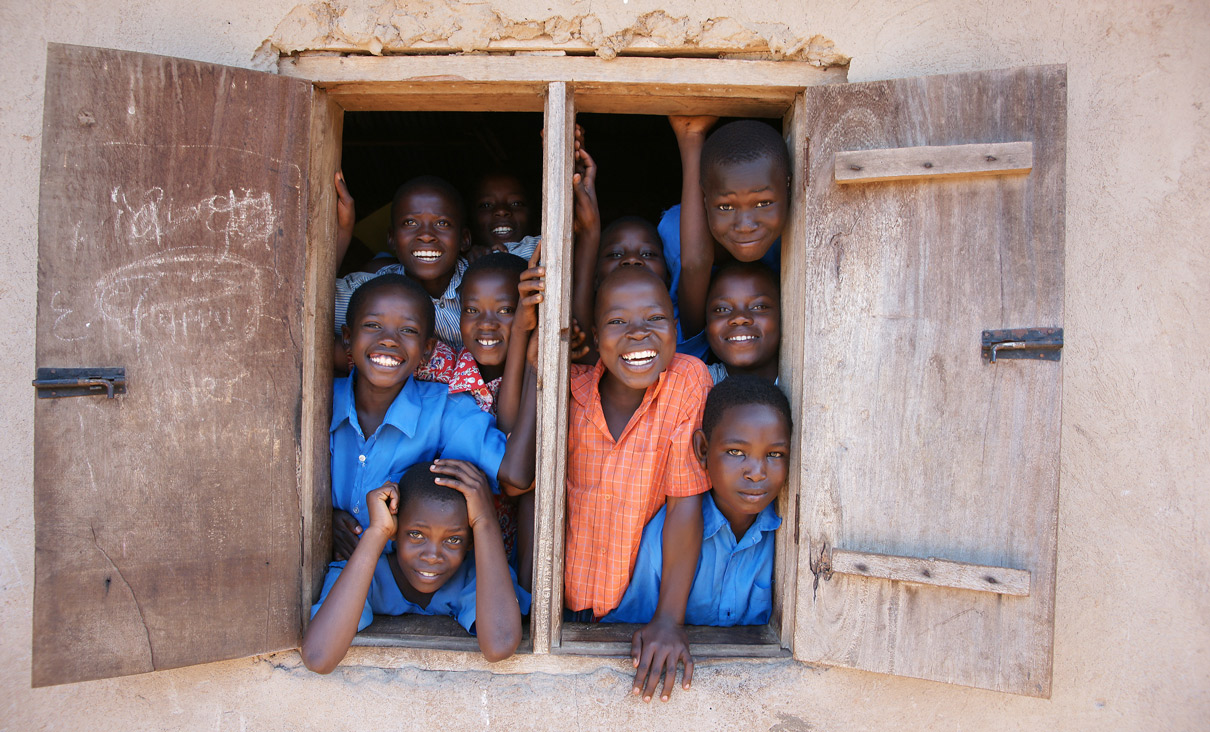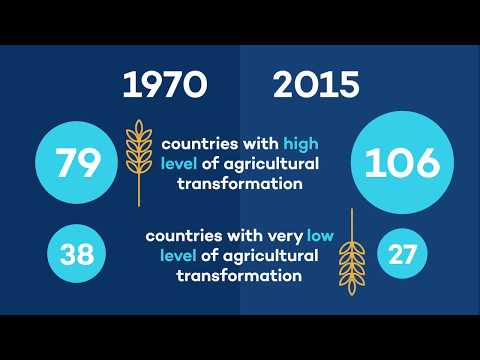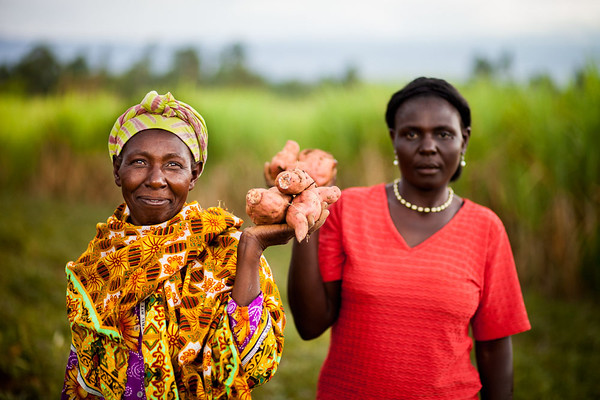Agricultural trade integration in ECOWAS
The Economic Community of West African States (ECOWAS) is a regional economic community (REC) composed of 15 member states and an associate country. Created in 1975 in Abuja, ECOWAS was established to pursue stability and regional integration in Africa and, over time, has expanded its mandate to include political dimensions. It is one of the largest RECs in Africa, covering a physical area of 5.1 million square kilometers with an estimated population of 424.3 million people as of 2022. The region’s gross domestic product (GDP) in 2022 was estimated at US$758 billion, which represents a quarter of Africa’s GDP (World Bank 2024). As the ECOWAS region pursues a process of structural transformation, the region’s economy has shifted toward industry and services, and the share of agriculture in GDP in ECOWAS countries has been declining, as in many developing countries (Laborde et al. 2018). However, the agriculture sector still represents 26 percent of GDP2 on average across the region, although with a high degree of heterogeneity: the share of agriculture in total GDP ranges from 5 percent in Cabo Verde to 60 percent in Sierra Leone. The REC is a heterogenous bloc that encompasses economic and demographic giants like Nigeria and small states like Cabo Verde and Gambia. It also includes landlocked countries (Mali, Burkina Faso, and Niger), members with access to the sea (Guinea-Bissau and Sierra Leone), and island states (Cabo Verde). ECOWAS is often cited as a successful example of regional integration in Africa. Indeed, since its beginning, the integration process has moved forward continuously with key successes such as the free movement of people, which has been in effect since 1979. Among the eight RECs recognized by the African Union, ECOWAS ranks fifth for trade integration and first in terms of the free movement of people, according to the Regional Integration Index built by the United Nations’ Economic Commission for Africa (UNECA). However, when it comes to movement of goods, results are mixed, and serious challenges remain despite the formal processes of liberalization adopted by member states. The frictions affecting the free movement of goods are problematic, particularly for agricultural products, given that, in an environment marked by global crisis (notably the pandemic of COVID-19 in 2020 and the ongoing Russia–Ukraine war), regional trade could mitigate the negative impacts and stabilize domestic markets. Furthermore, recent political tensions, marked by the intention of three member states (Mali, Burkina Faso, and Niger) to withdraw from the organization, raise questions about the REC’s sustainability. This chapter assesses the level of agricultural trade integration in the ECOWAS area, progress made, and the challenges ahead. In the next section, we provide the historical background, reviewing early regional integration initiatives in Africa and the main steps in the construction of ECOWAS. The following section assesses trade costs within ECOWAS, including tariffs, nontariff measures, and logistics performance, with a special focus on costs arising from currency diversity as an impediment to trade. We then examine intraregional trade flows, including informal cross-border trade, which represents the bulk of these flows. Before concluding, the chapter presents key achievements and main challenges to greater integration.
Authors
Bouët, Antoine; Diallo, Souleymane Sadio; Traoré, Fousseini
Citation
Bouët, Antoine; Diallo, Souleymane Sadio; and Traoré, Fousseini. 2024. Agricultural trade integration in ECOWAS. In Africa Agriculture Trade Monitor 2024, Odjo, Sunday, ed.; Traoré, Fousseini, ed.; and Zaki, Chahir, ed. Chapter 6. Kigali and Washington, DC: AKADEMIYA2063 and International Food Policy Research Institute. https://hdl.handle.net/10568/151914
Country/Region
Benin; Gambia; Ghana; Guinea; Liberia; Mali; Niger; Nigeria; Senegal; Sierra Leone; Togo; Mauritania
Keywords
Cabo Verde; Côte D’ivoire; Guinea-bissau; Africa; Western Africa; Trade; Economic Development; Agriculture; Trade Agreements; Tariffs
